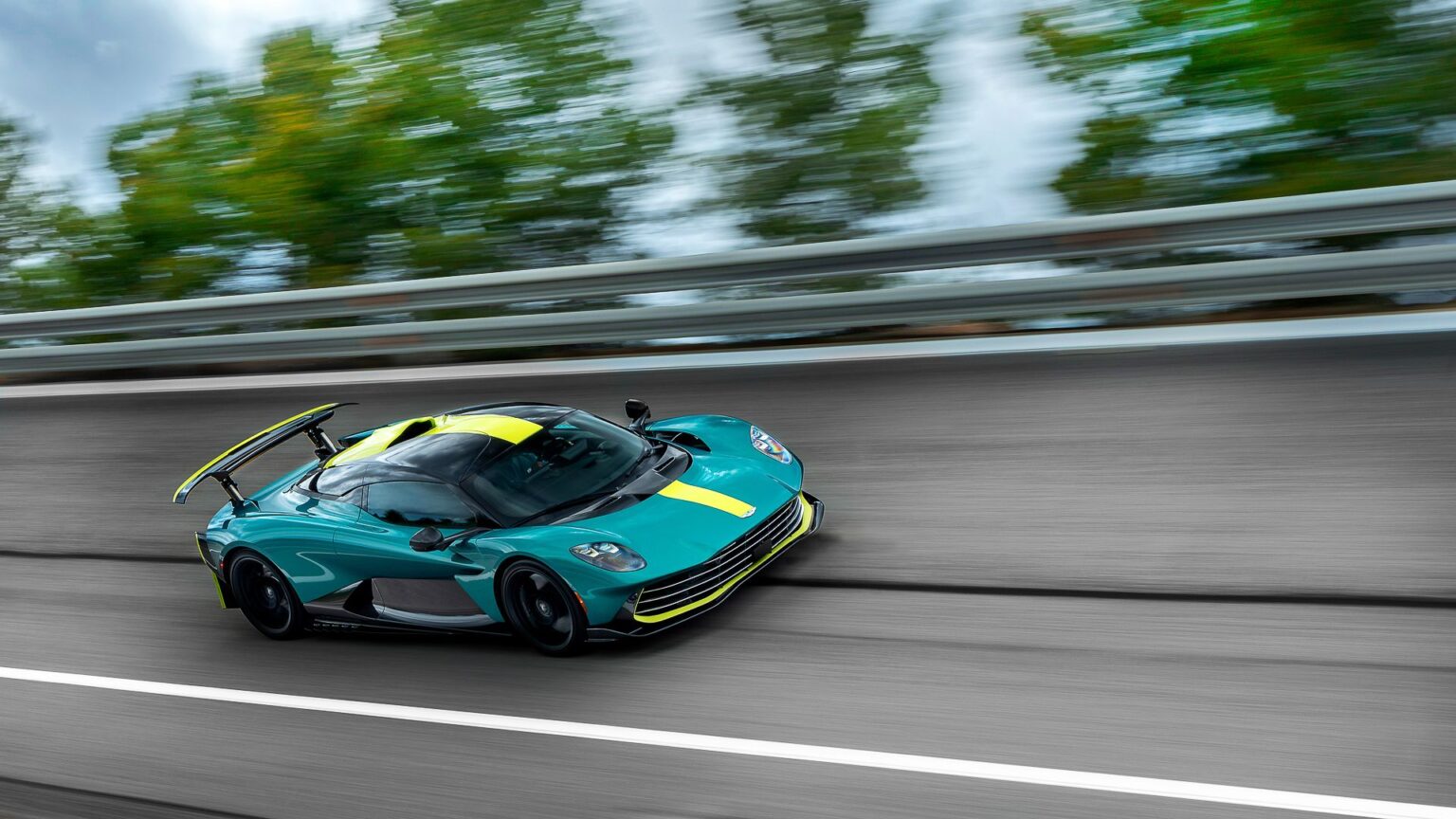Aston Martin’s journey toward electrification has taken an unexpected detour, with the luxury automaker pushing back its battery electric vehicle timeline by at least a year to 2026. The delay stems from weaker-than-expected demand in the luxury EV market, forcing the British marque to recalibrate its ambitious electric strategy that was originally set to debut its first pure EV in 2025.
Instead, Aston Martin is doubling down on plug-in hybrid technology, starting with the , while its $450 million partnership with Lucid Motors continues to develop behind the scenes. Perhaps most surprisingly, Aston Martin’s Chief Creative Officer Marek Reichman revealed the company is seriously considering borrowing one of the most controversial features from Hyundai’s playbook: simulated engine sounds and gear changes for its future electric vehicles.
“We’re developing battery electric cars, but they’re further out into the future.”
– Marek Reichman, chief creative officer of Aston Martin
The admission comes as luxury automakers worldwide grapple with a stark reality check in the EV market. While mainstream electric vehicle sales continue to grow globally, the luxury segment has experienced notable turbulence, with overall EV prices falling 9% year-over-year and luxury EV growth rates slowing significantly compared to previous years. Aston Martin’s partnership with Lucid, announced in 2023 as a game-changing collaboration worth over $450 million, was initially positioned to fast-track the brand’s electric transformation using the most advanced powertrain technology available. However, market conditions have forced a more cautious approach, with now prioritizing hybrid technology as a bridge to full electrification rather than rushing headlong into the battery-electric future.
Market Realities Force Luxury Automakers To Pump The Brakes
Aston Martin’s decision to delay its pure electric vehicle launch reflects broader industry challenges, including high interest rates, economic uncertainty, and the reality that luxury buyers are proving more selective about electric vehicles than initially anticipated. The company’s partnership with , which provides access to cutting-edge battery technology and dual-motor powertrains capable of over 500 miles of range, remains intact but will now serve a longer-term strategy. As originally reported by CarBuzz, Reichman emphasized that “We’re developing battery electric cars, but they’re further out into the future,” signaling a more measured approach to electrification.
The Surprising Hyundai Connection That Nobody Saw Coming
In perhaps the most unexpected revelation from Reichman’s interview, Aston Martin is seriously considering adopting simulation technology pioneered by Hyundai’s N performance division. The Korean automaker’s Ioniq 5 N features “N e-Shift” technology that creates artificial gear changes through motor torque adjustments, complete with shift paddles and synthesized engine sounds that can fool passengers into thinking they’re riding in a traditional performance car.
Hyundai’s approach has proven surprisingly successful with enthusiasts, despite initial skepticism about “fake” transmission behavior in electric vehicles. The system uses advanced software to interrupt power delivery between simulated gear changes, creating the physical sensation of shifting through an eight-speed dual-clutch transmission. According to automotive testing, while the simulation does slow acceleration by approximately four-tenths of a second to 60 mph, it significantly enhances driver engagement and provides crucial feedback for track driving. Reichman stated that if such technology “is a benefit to the driving performance capability of our cars, and therefore it is authentic and real, and we can use a system that allows the driver to have more emotion about driving, then yes,” Aston Martin would implement similar features.
Source: CarBuzz
Read the full article here


